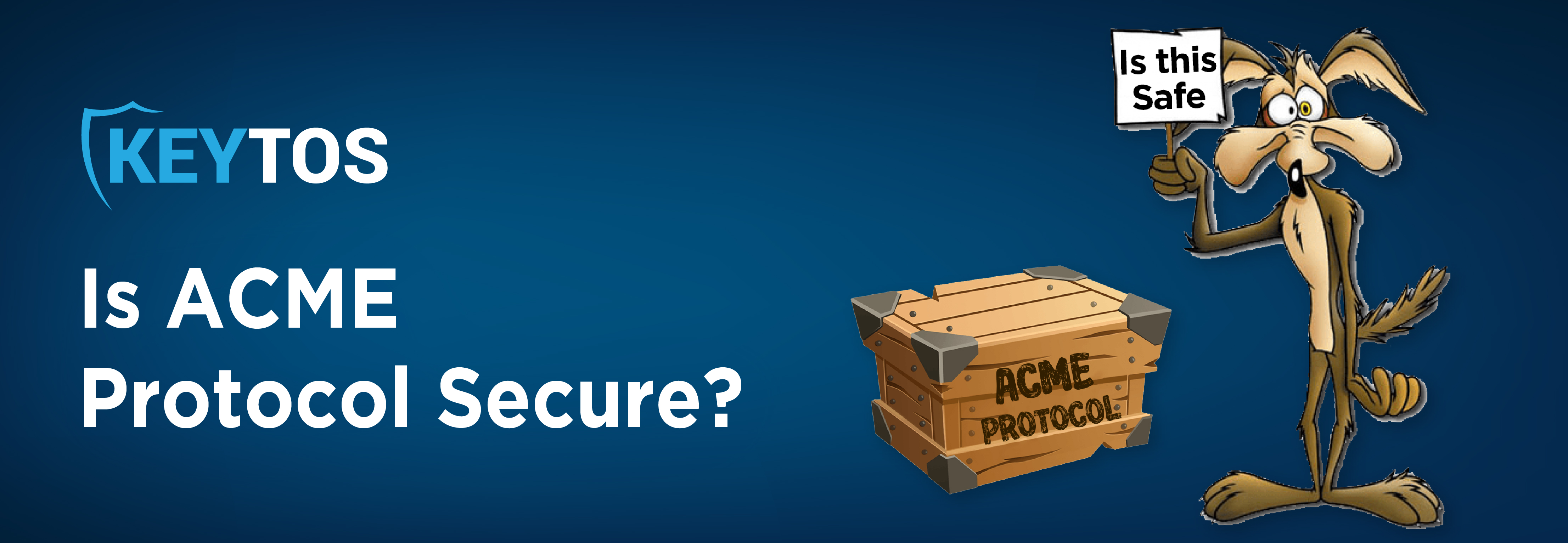
Everything You Need to Know About ACME Protocol
Let’s be real…cyber threats are ever evolving, and organizations constantly seek out streamlined solutions to protect their digital assets. That being said, protocols that automate secure processes are absolutely golden. Enter ACME, or Automated Certificate Management Environment. But the pressing question lingers, is the ACME protocol secure? Let’s take a thorough look into ACME, its security features, some common misconceptions, and how it’ll keep you secure. …it could also save you a couple bucks and a few migraines, but I digress. Let’s get into it.
What is ACME?
ACME (Automated Certificate Management Environment) automates the process of domain validation, certificate issuance, and certificate revocation. In layman’s terms, it lets systems and servers obtain and renew certificates (SSL/TLS) without manual human intervention. Automation addresses the common pitfall in certificate management, human error. By ensuring that certificates are regularly and automatically renewed, you’ll minimize the risk of certificates expiring.
Why is ACME Secure?
Domain Validation: A key feature of ACME is its rigorous domain validation process. Before issuing a certificate, the ACME protocol ensures that the requestor has control over the domain. This is a critical step in ensuring that bad actors can’t procure certificates for domains they don’t own.
Short-lived Certificates: ACME is typically paired with short-lived certificates, which have a much shorter expiration period compared to traditional certs. While this means they need to be renewed more frequently, it implies that if a malicious actor gets access to a certificate, they’ll have a limited time to exploit it. Some believe short-lived certificates make systems more vulnerable due to the frequent renewals; however, as ESPN’s Lee Corso would say… “NOT SO FAST!” In all actuality, short-lived certificates reduce the window of opportunity for a compromised certificate to be exploited.
Automated Revocation: In the event a certificate is compromised, ACME simplifies the process of revocation, ensuring that vulnerable certificates are quickly identified and invalidated.
Common Misconceptions About ACME’s Security
One of the common misconceptions about ACME is that it isn’t secure because it employs DNS validation and Let’s Encrypt. This is inaccurate for a variety of reasons, detailed further by Keytos CEO Igal Flegmann:
“I’ve had companies that say ‘Oh no we only used EV certificates because we want them to verify our Enterprise and make sure that we’re legit; however, if you’re not blocking people from using ACME and using Let’s Encrypt, you’re still exceptionally vulnerable. You might be using your EV certificates…but if an attacker finds a dangling DNS, which is a massive problem in the world now (we actually find around 15,000 Dangling DNS every month), they can still go and create a certificate. There’s nothing stopping them unless you have a CAA record! CAA records are the only way you could block rogue certificate creation, and it’s a good practice to have that CAA record that you only issue certificates from the CAs you trust and that you usually work with.”
How Does ACME Help?
Efficiency and Reliability: Automation means fewer errors. Automating certificate issuance and renewal processes eliminates the common errors in management, ensuring that comms are not interrupted due to expired or incorrectly configured certificates.
Quick Response: Speed matters. ACME’s ability to quickly issue, renew, and revoke certificates means that domains can be secured, vulnerabilities patched, and threats nullified in record time.
Ease of Integration: ACME has been integrated into numerous web servers and hosting platforms, making it relatively easy for organizations to adopt. This ensures organizations of all shapes and sizes can benefit from its features without having to restructure their existing systems.
Cost-Efficient: By automating processes that otherwise require dedicated human resources, ACME can significantly reduce the costs associated with certificate management.
Is ACME protocol secure? Absolutely. Or as Stone Cold Steve Austin would say, “OH HELL YEAH!” Not only does it streamline the absolutely miserable processes associated with certificate management, but it also introduces rigorous security checks and balances to ensure domain integrity. Ultimately, by integrating ACME into your security frameworks, you’ll be able to experience enhanced security, reduced costs, and peace of mind in the volatile realm of digital comms.


